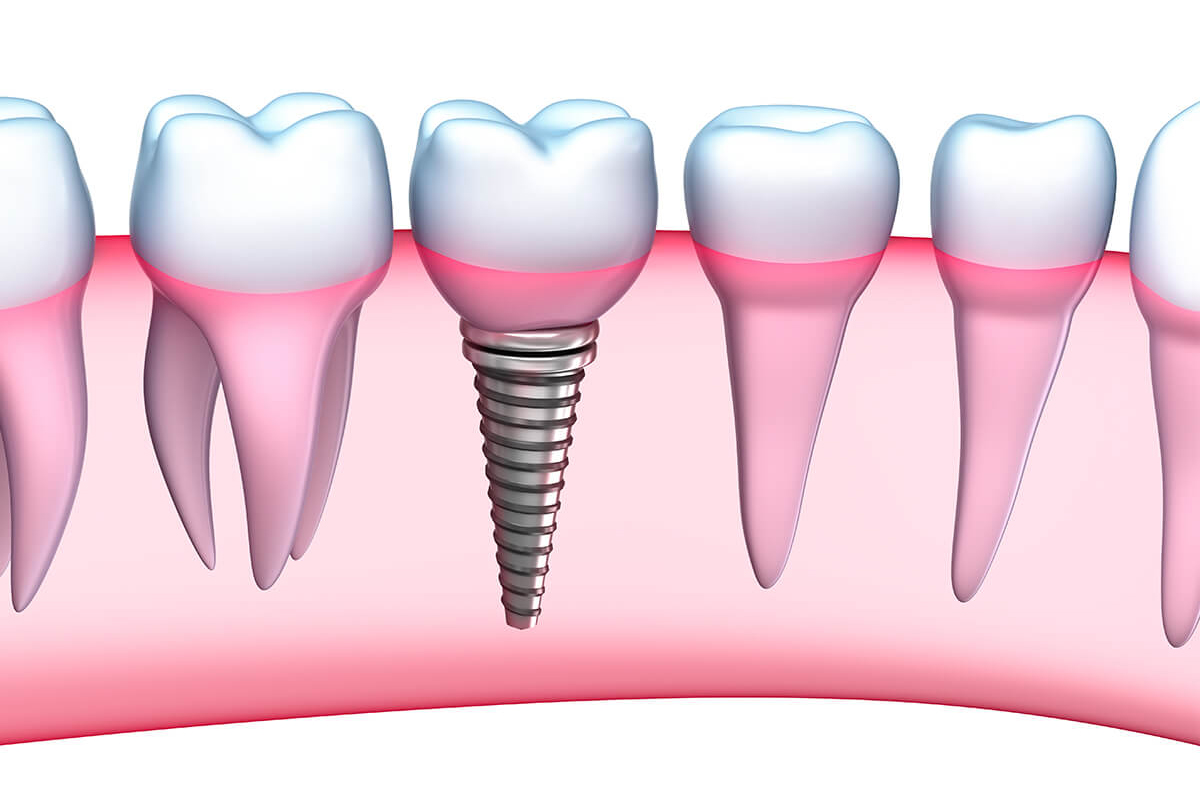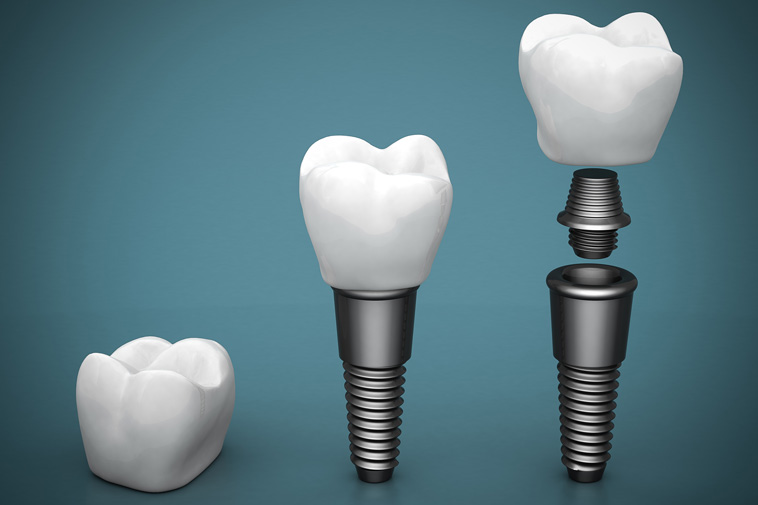Replacing Missing Teeth With Dental Implants In West Hills Los Angeles, CA
Dental implants are often considered the gold standard solution for replacing missing teeth. This treatment gets to the root of the problem, quite literally. Most tooth replacement appliances rest atop the gums. Implants are different. They actually replace tooth roots, effectively replicating the structure and function of natural teeth. Dr. Shoffet is proud to offer her patients this exceptional treatment, right here at Royal Dental Practice in West Hills Los Angeles, CA.
How implants restore your smile

Implants are typically made of titanium, a material that the human body easily accepts. Once the implants are placed, bone tissue gradually begins attaching to the surface, in a process called osseointegration. This is important for a couple of reasons. First, it holds the implant firmly in place. Secondly, it helps keep the surrounding bone strong and healthy.
Once the procedure is complete, you will not see the actual implant. What you will see is the restoration, which may be a specially designed crown, bridge, or denture, that is attached to the implant.
Why choose dental implants?
The benefits of implants are numerous:
- Functionality – Implants are strong and stable, allowing you to speak clearly, laugh with confidence, and enjoy your favorite foods.
- Comfort – Because they function like natural teeth, implants feel like natural teeth.
- Convenience – Caring for your new smile is simple, just brush and floss normally, and see us for regular checkups. There are no special tools needed, and no extra steps in oral hygiene.
- Health – Implants do not require any alteration to remaining teeth.
- Appearance – Dr. Shoffet uses natural looking materials, and designs implant restorations using the principles of cosmetic dentistry. You will not look like you have false teeth. You will look like you have natural, healthy, absolutely beautiful teeth.
- Versatility – Implant treatment can replace one, several, or all your teeth.
- Longevity – Expect your restored smile to last a very long time. In fact, with good oral health dental implants often last for life.
A case of dental implant at Royal Dental Practice - Dr. Roya Shoffet

Hi there, I am Dr. Roya Shoffet, and my office is in West Hills, CA. I like to bring you the journey of this tooth that we treated for this lovely patient of ours.
He had bad decay on one of his teeth and needed a crown. As you can see, he has a missing tooth area for that he needed an implant.
On this X-ray, you see our specialist periodontist placed the implant and after the period of healing took place, here is the date of delivery.
We have two beautiful crowns, one is a porcelain crown that was treated for the decayed tooth, and this is the crown with the screw-retained.
It has a temporary filling right now, and later on, we’re going to do the porcelain repair, place composite and it’s going to be invisible.
He’s happy. It was an excellent result and a journey we accomplished for this patient.
Call us at Royal Dental Practice for all your dental needs.
The Journey of Dental Implants at Royal Dental Practice in West Hills, CA!

Today, we take you through the transformative journey of dental implant placement, a procedure that restores smiles and enhances oral well-being. It all begins with a thorough consultation.
We evaluate the patient’s oral health, discuss treatment options, and outline the implant placement procedure. Comprehensive assessments, including x-rays, are conducted to ensure the feasibility of the implant. Once the assessment is complete, we work on a detailed treatment plan.
This includes determining the optimal implant location, considering bone density, and planning for any necessary preparatory procedures. The day of implant placement arrives. The patient is made comfortable, and local anesthesia is administered to ensure a pain-free experience. Our periodontist or oral surgeon precisely places the implant into the jawbone.
After implant placement, a healing period begins. The jawbone gradually fuses with the implant through a process called osseointegration. Patients are given postoperative care instructions to promote healing and prevent complications. Dental implant placement is more than just a procedure. It’s a journey to restore confidence and functionality.
If you’re considering this transformative treatment, consult with your dentist to explore the possibilities.
Are implants right for you?
Most people who are healthy enough for a very minor oral surgery are potential implant candidates. However, a CT scan or X-ray is necessary to ensure that you have enough bone tissue to support them. Occasionally patients with severe bone loss may need a grafting procedure before implants can be placed. The best way to explore your options is to call us at (818) 334-6655 and arrange a consultation with Dr. Shoffet.











